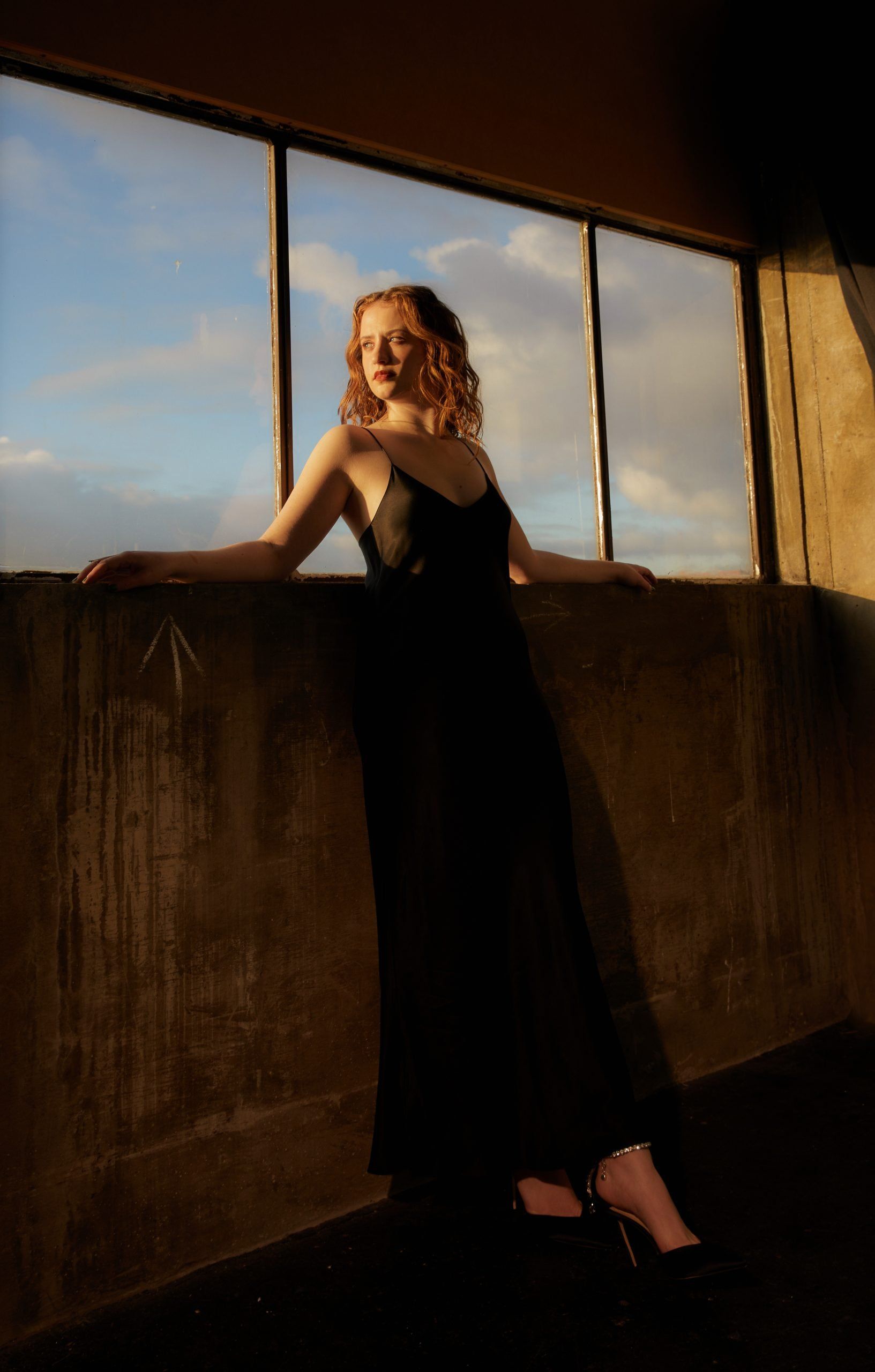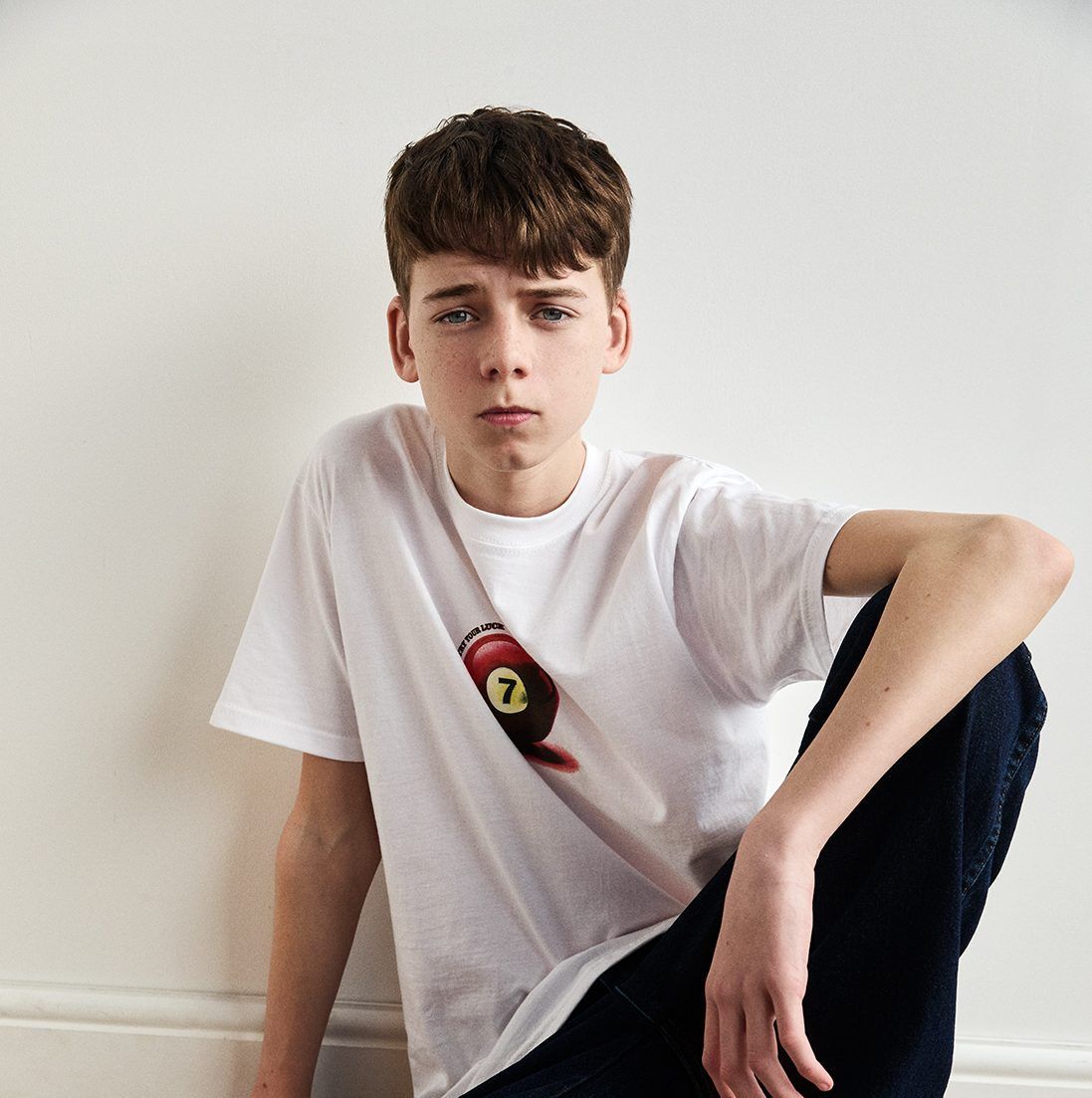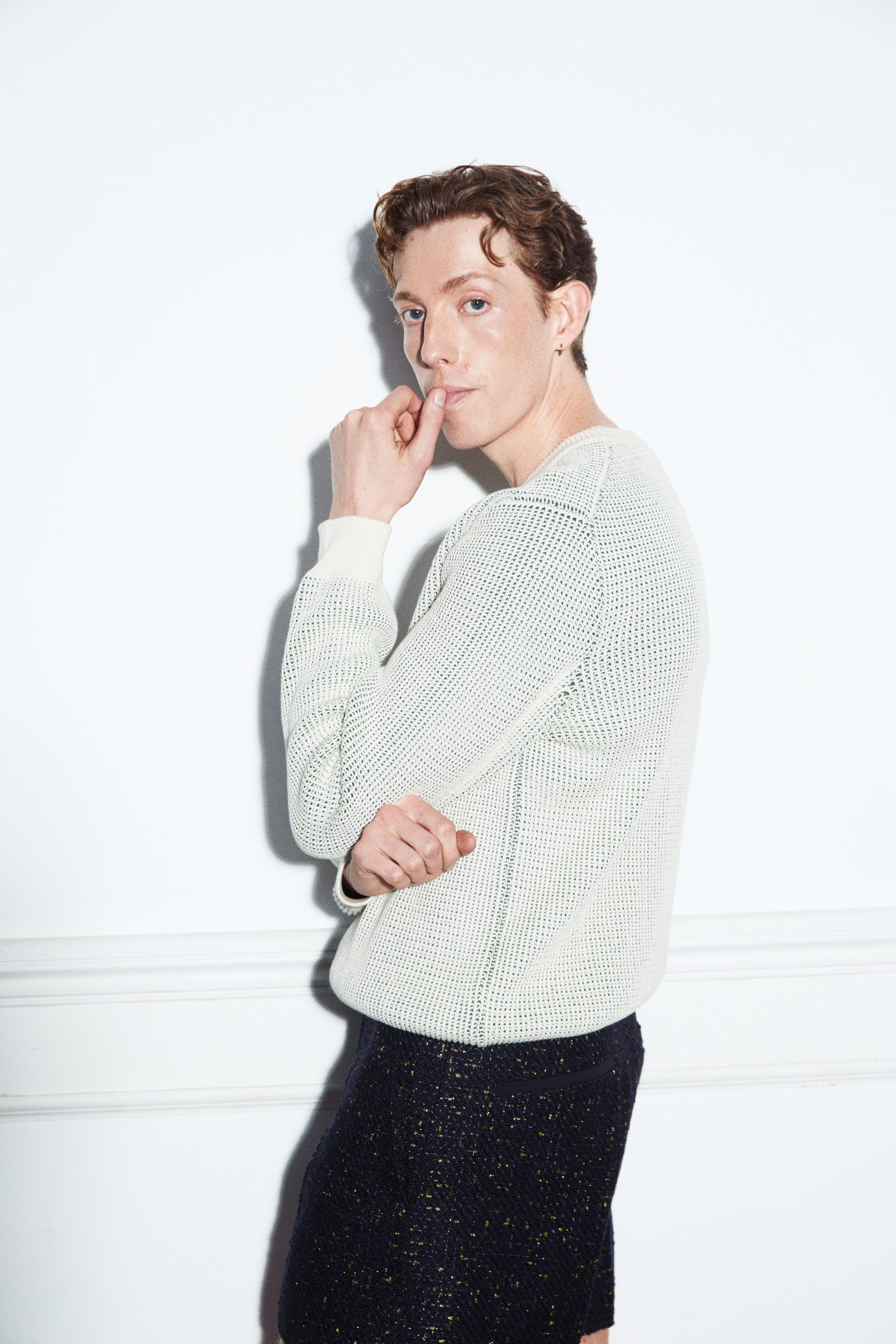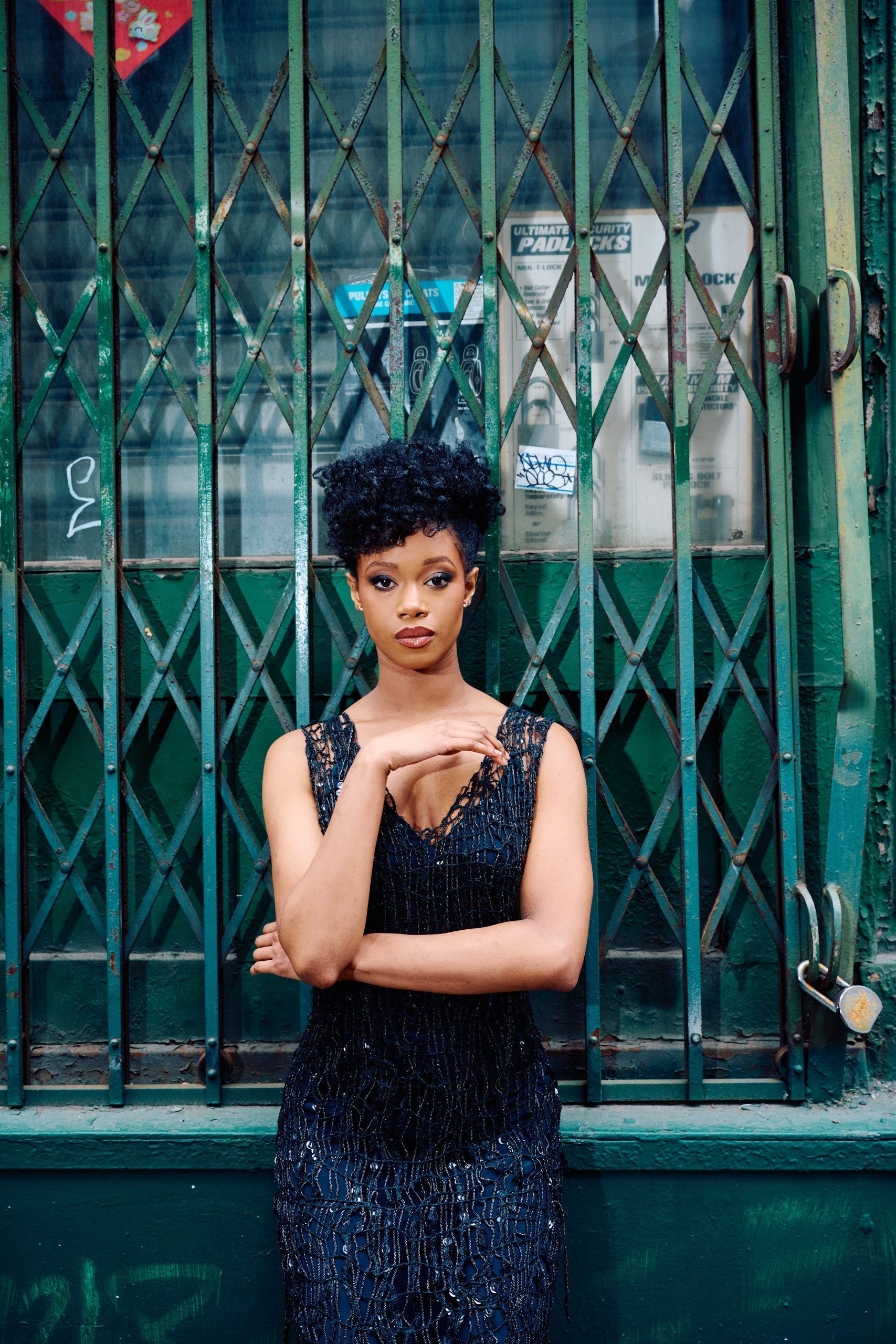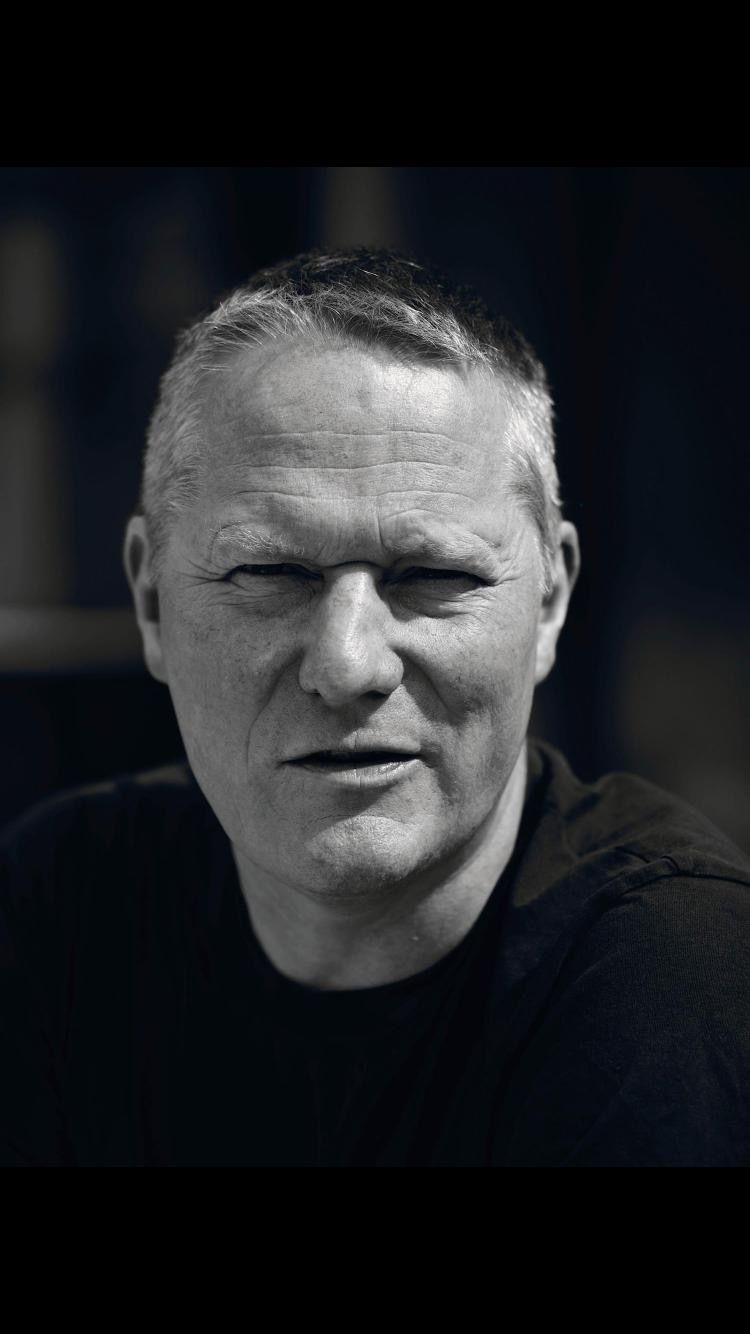Extraordinary’s rising star Máiréad Tyers has a lot to be celebrating – especially thanks to her first leading role, which happens to be her first major role ever, proving she’s anything but ordinary.
Máiréad Tyers has always been drawn to the arts. Raised in Cork, Ireland, her early jobs revolved around getting as close to a stage or screen as physically possible, even if it meant just directing people to their seats at a theatre. You could say her progression to actor was inevitable – Máiréad says it’s down to a whole load of luck and good timing.
Moving to London after finishing school and landing a spot at the esteemed Royal Academy of Dramatic Arts (RADA), Máiréad knuckled down in the culture clash this new world provided, and soon achieved something most actors could dream of – a place on a movie set of a soon-to-be Oscar-winning movie directed by esteemed then-RADA president, Kenneth Branagh.
But Belfast is a drop in the pan compared to what she went on to do next. Just two years later, Máiréad is now the leading star of Disney+ and Hulu comedy, Extraordinary – where her character, Jen, is tasked with navigating her mid-20s at a disadvantage as, in a world full of superheroes, she’s powerless.
Most twenty-something women can relate to Jen – crashing through life with the tact and skill of Sonic The Hedgehog in hyper mode, desperately trying to figure out who she is when everyone else seems to have had it come naturally to them. But there’s more to Extraordinary’s technicolour world of slapstick and fantasy. With Jen, we see a portrayal of grief and how to handle it in a way that’s rarely shown, a reliance on a hyper-dependent friendship group to survive that’s all too common, and a complicated familial relationship where she’s never sure where she stands. In Jen, Máiréad manages to portray what it’s like to truly feel human – even in a superhuman world with a pet cat/boyfriend called Jizzlord.
1883 Magazine’s Tilly Pearce caught up with Máiréad to talk about her career so far, Extraordinary season 2, which dropped on March 6, and how a little self-belief can be your biggest superpower of all.
Something simple to start with: What made you decide to become an actor? Was there a defining moment which made you go ‘this is what I’m going to do’?
I always did drama and youth theatre and stuff growing up, and I remember I used to watch actors, young Irish actors like Saoirse Ronan, and there was a girl Ann Skelly who’s an amazing actor… I used to watch them being young Irish actors, at the age I was getting to, and going, “How do I do that? How do I get to be in a film? How do I get to do theatre, at this age that I currently am?” I felt like I was just clasping at any opportunity I possibly could – whether it was going to Dublin for a random kind open casting call, or auditioning. I remember auditioning for a theatre show, and when I went to see it, the woman who got it was 35 and when I auditioned I was 16! [laughs] But still having some sort of belief this might be the job I need that will then let me be into the industry!
You need that as an actor though – the level of self-belief.
Yeah! I think there always needs to be a quiet confidence you should work, and that absolutely is it. Every actor deserves to work – it’s a case of luck and what comes at the right time that then enables you to kind of snowball into carrying on working. Luck is, everyone deserves it, it’s just luck that’s the thing, if it matches up at the right time, then it can happen. When I got older and when I was doing work experience and stuff during school, I would go to work in these theatres for two weeks at a time and meet all of these actors who are in their early 20s. One of them was the Granary Theatre where Disco Pigs – which is the play Cillian Murphy did that catapulted him into his long career – working in those buildings with such history in them, and just feeling like I want to be part of this in a stronger way than I currently am. Then hearing about drama school and going, “Right, well that seems the avenue to go down. Let’s do that.” I think my desire to do it grew more and more over time, in a way maybe I was actually quite subconscious of, until there was no other option.
You took quite a leap by moving from Cork to London after getting into RADA – what was that experience like?
It was very much a culture shock, because it came at a time where I was still doing my leaving certs – which is A-levels I guess [in the UK]. I remember I found out that I got into RADA about two weeks before we sat all of our exams. As soon as I found out, I was like, ‘Well, none of this matters!’ But my mom was like, “Yes, it does. Because you don’t know what’s gonna happen!” But I was like, “No, none of this matters” [laughs]. I still did well, because I really enjoyed school and I was quite academic.
It was a weird period, I remember that summer all my friends went off to Magaluf and did a sixth-year holiday, and I can’t afford to do that if I’m thinking of going to London for the next few years. So I think the journey all my friends were going on, which was sandy Magaluf and starting university as freshers where it’s kind of free and you get a year off before you need to knuckle down and do any work, I felt I was going completely the opposite direction, which was quite hard and kind of isolating. I lost contact with those friends because when you’re in RADA, you don’t have time to be speaking to anyone it’s such hard work. I found the move over really hard. I missed home so much. I missed my friends so much, and also the RADA School is in the middle of Gower Street – it could not be more Central London. Even the idea of delivering pizza I had never even thought was a thing and all my housemates were doing it, and I was like, “Wait, you can have pizza delivered?!” I’m from the countryside, it was a completely different experience! It took me a while to get into my groove, but I had amazing people around me and I clung to the other younger ones in the year.
One of your first major breakthroughs was in the Oscar-winning Belfast, after being somewhat taken under the wing of Kenneth Branagh. What was it like working with him and that experience?
It was amazing. We didn’t have much to do with him when we were at RADA, but then towards the end, I had quite a lot to do with him. I think he does that every year he’s been the president of RADA – he’s taken a group of students under his wing, and not only is it getting them their first credit – because that’s the thing, I’m not in the film, but I can still have it as a credit – and I think when it’s gotten to later stages of getting bigger jobs, when they consider what your credits are, it doesn’t matter how much you’re in it, if you had the credit, you were there.
Not only that, it’s your first credit, and it’s an Oscar-winning movie!
That’s it. It’s not as if we were given loads to do or anything on set, it more felt like we were gifted the experience of being on a set that felt familiar and homely, and we had people in our year who were also there, getting picked up in the same cars, so all this stuff felt so comfortable. But it’s not only giving people their first credit, but also you’re giving them some money in the bank when they first graduate to make it easier. It just gives you kind of a float, like “right rent is sorted for two months now.” That’s a big help at that stage of your career.
The audition process, especially when you start, seems pretty harrowing. Has there ever been an audition you would consider ‘the one that got away’?
I remember auditioning for a tiny part – a tiny, tiny part – in Derry Girls at one point and not getting it, and feeling like, ‘if I can’t get Derry Girls, what’s the point?’ [laughs] But then literally a month later, Extraordinary started going. The timing of things, that’s what I was speaking about earlier with luck, the timing of things – I don’t want to say ‘everything happens for a reason’ because I don’t think it’s necessarily true, but I think timing – what is for you will not pass you. It’s a skill to be able to pick yourself back up after going through a long audition process and not getting it, because it can happen five times in a row. I admire people who can pick themselves back up at a quicker pace. It’s just over time, the more it happens, the more you’re able to snap back. In more recent times, there have been a couple of things where I’ve gone, “Oh God, I know I could have done that,” but there are also parts where I thought “God I know I could do a really good job of this… but not right now. I think I could do that in three years, when I either look different or have more experience.” I trust how things are meant to play out.
Keeping on the topic of auditions, do you remember the process for Extraordinary and it was like?
So the audition process was I had a self-tape in August 2021, and then I went away. I was at the Dublin Fringe at the time and I remember getting the call from my agent saying ‘oh, they want to see you for a recall next week, are you about?’ and I was like, “Absolutely!” I never expected it to amount to anything – I think each time I went back in, I was in the room maybe five or six times, and each time, more and more I just started believing they were asking me back in because I was a good person to do scenes with! [laughs] I could learn my lines and I turned up on time. So I thought,” Oh, they’re just using me for how to set up the other people in chemistry” or whatever.
Like the pawn of a chessboard?
Exactly. Yeah, like ‘she’s easy, she can fit in, so let’s just get her to keep coming back in’. And then obviously, as more scripts start coming through and more scenes are coming through to prepare, I was just like, “oh my God, this would be so much fun.” Of course, you start imagining your life being different. It’s like ‘right, so I could be doing this for the next four months’, or I could go back to, I was working a job in the cinema at the time. It was quite a difficult job. It was around the time when Bond [No Time To Die] had come out, and people had been waiting to watch that film for three years, and cinemas were packed. It was a hellish time, and it got to a point where I was trying to be really considerate with not turning up to the cinema because I was having the auditions.
I was trying to be considerate and then at the end I was just like, “Sorry, not coming into today! Got this tomorrow, I’ll be there tomorrow.” I just honed in – I needed to focus on this and let this be my concentration as much as possible right now’. When I got it, luckily I had about six weeks before we started filming, which I think is a blessing. So I immediately quit the cinema. I told them, ‘I start next week, so I actually need to quit right now. It’s just a really quick turnaround.’ I had another six weeks before filming, [laughs] but I just wanted to be done with it!
Extraordinary season 2 takes a turn for Jen, and becomes quite powerfully focused on the long-term effects of grief. What was your reaction to the change of pace when you found out about it for the first time?
On paper seeing it, you kind of go, “Oh my God, the setup of it, how would that ever…” Not how would it ever work, but it’s quite a bizarre thing. That wouldn’t ever really happen in normal day life, yet it does in the metaphor of what it represents. It’s something those who experience losing a parent have to do, and I really wanted us to do it justice. All those intense feelings… People have spoken to me about that period, when you’re in your mid-20s, where the inner child in you is still grasping onto those memories and relationships and the childhood you had, let’s say with that parent.
Then when you turn 25, it’s like, “oh… maybe you need to graduate in a way, or turn the grief into something else.” I think there’s a thing about needing to face it, and I think Jen for so long has just been completely… She’s been able to maintain this relationship, which is completely dysfunctional, with him through her best friend, but there’s something she’s been holding on to she needs to move on from. Not in any way she’s forgotten about him, but she needs to change that relationship. It felt so important we did it justice, and I hope we did because also that scene exists in a mad flurry of an episode, where there’s a musical happening and it’s pretty chaotic and mad… I hoped it would find its place in that episode still and I think it does. I just really hope we get season three because I think life after that scene, and what Jen can become post that scene could be something really beautiful.
What was it like working on those more sentimental scenes with Siobhán McSweeney as your mum?
With Siobhán, I felt an immediate connection with her, because she’s from the same place I am, and I think she naturally has a very warm presence. She kind of takes people in, and as soon as we started working on those scenes, it felt very connective and connected, and I think that’s the thing. We don’t get many of those moments with Mary and Jen, because they have such a head-to-head relationship all the time, it’s so full of conflict. They both deny things and while Mary is very criticising, she’s actually criticising Jen for the exact same things she does herself. I think when Mary actually softens and also when Mary stands up for Jen with George, it means the world to Jen. They don’t experience a very affectionate relationship, they wouldn’t be the type who say they love each other at all. You can see in episode three how difficult it is for Jen to say she loves her mum. For that relationship to soften as the episodes have gone on, it felt like a really special experience.
Without giving too much away, how do you think the progress Jen made as a person will affect her going forward?
One of the main things is the relationship with Jizzlord. When you think of the relationship – or situationship – she was having in the first season, it was this guy who was ‘out of her league’ and who has ‘a higher status in society’, not just because he can fly but because he’s very good looking, and he’s aware of it. He’s aware she’s a lesser person than him, and she was allowing it to be because I think it fuelled something in her, feeling like this guy who was in society above her liked her. Even on the basis that he treated her awfully, it still made her feel better.
Then in the last episode, when she realised, “What am I doing? This guy doesn’t actually care about me and I’ve got a guy who says he does, and it should be that simple. Why am I denying how simple it should be?” Even in the first couple of episodes of season two, the whole relationship with Jizzlord and people from his past who he now has to face and deal with… In past years, Jen would have ran a mile if something like that came up and be like, “I’m not competing. I don’t care about you enough, and I’m not getting involved.” This time around, she’s gone, “No, I actually I’ll make it work. We’ll make it work. It’ll be fine.”
On a slight sidenote, how have you adapted to having to use the name ‘Jizzlord’ repeatedly with a straight face in interviews over the past couple of years?!
I’ve gotten so used to it at this stage! [laughs] But when I say it, it’s almost like people flinch a little bit. We’ve gotten so used to it that the name washes over us now. I look at Luke [Rollason] and I’m like, ‘Luke’s a jizzlord’ – it’s just right that’s his character’s name in the show. But there’s been a lot of legal chats of ‘please don’t say this word on live telly’ or ‘please don’t do this’. There’s a lot of legalities around it.
Jen is certainly lovable, though her decision-making skills are a little… somewhat to be desired?
Yup! [laughs].
What would you say to her if you were living in her world and she was like, a mate of yours asking for advice down the pub?
I would just kind of tell her to relax a bit! I think on the surface she seems like she’s quite a relaxed person, but she actually has to work so hard to pretend like things are fine and pretend like she’s not insecure. If she’s actually realises everyone in the world is insecure… Also I would try and just tell her – as hard as it can be, and this is something that is such a conversation nowadays – to not compare yourself to others. You will honestly gain nothing from doing that. It’s not conducive to anything and you can be your own person. And I think I’d tell her to appreciate Carrie more, and for them to stop enabling each other.
They’re a pretty hyper-dependent pair.
So hyper-dependent. I feel they should just have three months apart, or one of them goes travelling, or they just do something without each other for a while and then come back. Jen depends so much on Carrie but then thinks she’s independent. And I would love for her to be more self-aware.
Finally, considering Jen’s status without a ‘superpower’, what would you consider an everyday superpower people might take for granted?
I think an everyday superpower is people who are always on time. Especially in London! For me to get into town, it takes one bus and a tube, and yet I still cannot seem to be very on time. And there are certain things I am on time for and certain things I’m not. What in my mind is the difference between specific friends that you can be late for, and then friends where you’re like, ‘I can’t be late for them’, because you know they will always be on time. I think an everyday superpower is the ability to always be on time, or being able to get to sleep at the right time. Always get your eight hours’ sleep. That’s quite a good one. I’ve been working on that though. I feel like I’m quite good at that now!
Extraordinary season 2 is available now on Disney+ in the UK, and Hulu in the US.
Interview Tilly Pearce
Photography Klara Waldberg
Styling Farrah O’Connor
Hair and make-up Tamara Mae

